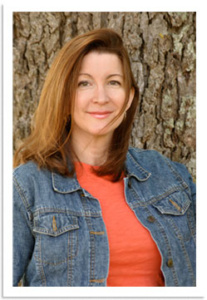
This post was originally published on Brenda Kearns’ blog here.
Most people will say that fiction is fake and non-fiction is true, but have you ever had a news article written about yourself or a topic you’re very familiar with? Was it 100% accurate? Not likely!
Yet news articles are supposed to be non-fiction. Ditto for textbooks. They’re filled with facts and figures that are based on suppositions of the time but that doesn’t make them true.
When I write fiction, I use real events, real places, the real food that was eaten and—if I can find it—I’ll even include the real weather. In my newest novel, Dance of the Banished, Zeynep witnesses a solar eclipse that actually did take place a hundred years ago on the exact date and time that she witnessed it. All of the history is real in this novel and everything that happened did occur.
So why isn’t it called non-fiction? Because I’ve made up dialogue and my characters are my creations based on real people, but they’re composites of the real people who lived a hundred years ago.
Most of the books that I write are categorized as fiction because the characters and dialogue were created by me, but I have also written non-fiction—Last Airlift: A Vietnamese Orphan’s Rescue from War, and One Step At A Time: A Vietnamese Orphan Finds Her Way are written in a style that’s called “narrative non-fiction.” What that means is they have a story arc similar to fiction and there are scenes and characters just like in fiction. The difference is that the characters in narrative non-fiction are the actual real people, not composites that I made up. The scenes are recreations of incidents that Tuyet told me about, or if it was an incident she didn’t remember, someone else told me about. I did make up the dialogue, but then Tuyet herself read it and either said it sounded like what she would have said, or she changed it herself.
For me, writing narrative non-fiction and writing fiction are two ways of being able to tell the truth. Sometimes I don’t know until partway through a story whether I’ll be writing it as fiction or non-fiction. For me as the writer, the research process for both forms is the same, and the accuracy of the events is the same.
The thing that sets my non-fiction apart from my fiction is whether I can find a person whose story on its own is well-documented enough to write a whole book about. That was the case with Tuyet because she is still alive and so are her siblings and mother. I could interview them, and I could talk to various caregivers and volunteers to paint a good picture of exactly what happened to her.
But what about Lida in Making Bombs for Hitler? She is a composite character and her story is written in novel form. The reason I did this for her story is because most of the slave labourers like Lida in WWII died. It’s hard to interview a person once they’ve died! In order to find her story, I read diaries and documents and government reports, and I interviewed survivors who had lived through one aspect of Lida’s experiences. I pulled incidents from here and there and wove the whole. Everything in that novel did happen, but not specifically to a girl named Lida.
When I began researching Dance of the Banished, I had hoped to write it as non-fiction. I was able to access newspaper clippings, diaries, letters, maps and government reports about a young man’s arrest and internment, and also about what it was like for a girl to be left behind in Ottoman Turkey, in a country plunged in the midst of an ill-planned war.
But I couldn’t interview a person like Ali, nor anyone like Zeynep because their story happened a hundred years ago. Even though the day-to-day events are well documented, and in my novel they happen at the exact time they did a hundred years ago, if I’d written the book as non-fiction I wouldn’t have been able to breathe life into Ali and Zeynep. I wouldn’t have felt comfortable giving them words and thoughts and wants if I couldn’t ask them, couldn’t interview them.
But their fictionalized story is the truth.
